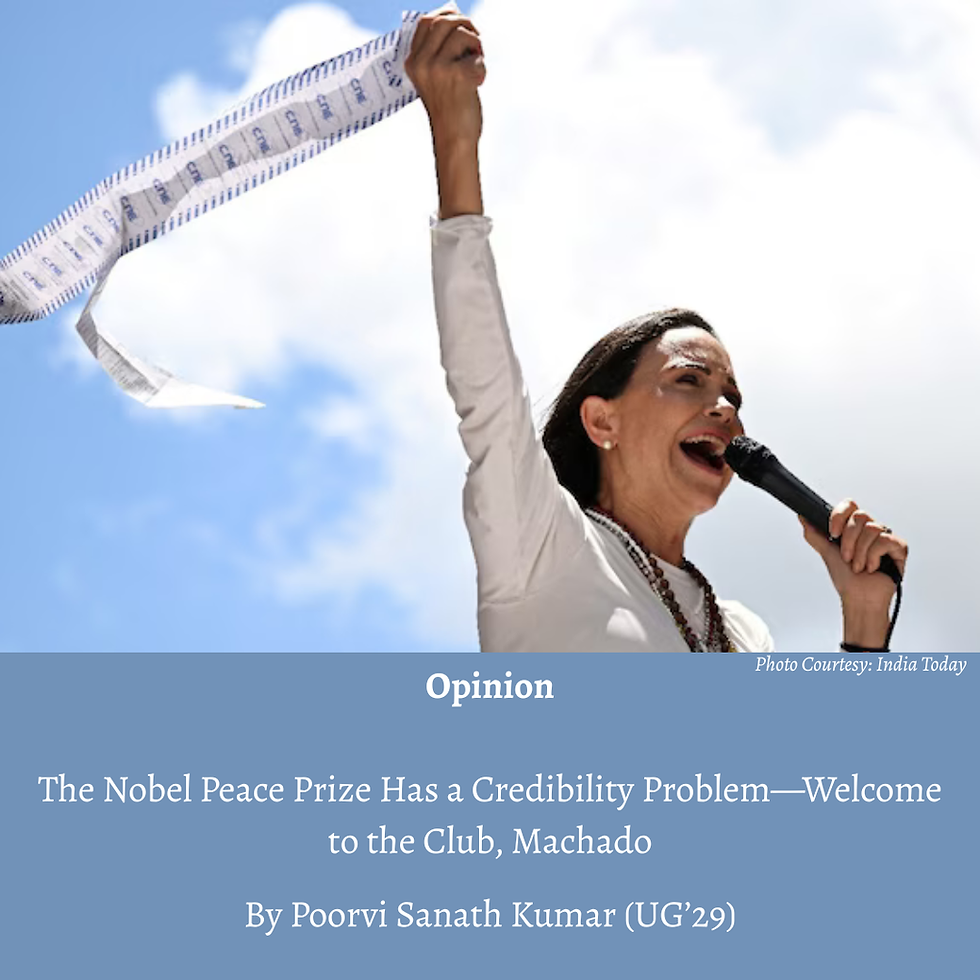An Open Letter Responding to Ex-CEO’s Op-Ed in The Edict
- The Edict
- Feb 3, 2021
- 3 min read
By Amola Mehta (UG21) and Maanya Saran (UG21)
Dear Shashank and everyone else,
We’d like to begin by saying that, as fellow alumni of the Election Commission, we were very happy to see you candidly engaging with questions that afflict Ashokan politics. We are penning this letter in response to your 25th January op-ed in the Edict titled “Trust is AUEC’s Greatest Asset”: Ex-CEO Suggests Ban on Former Commissioners Joining SG. In the spirit of accountability, it is important that questions are asked of us from all corners of this community and in the interest of healthy discourse, it is equally important that they be answered honestly and respectfully.
This question of whether former Commissioners should be able to join the SG has been raised a few times in the recent past and it will continue to be relevant for a while longer. Our take on this is admittedly not very different from that of the current Chief Election Officer, Abhay Hari. There is a limited number of people who care about student politics and there is a limited number of years that they spend at Ashoka. We are tremendously grateful for our time in the AUEC and forming Tarz does not take away from what we believe was an impartial and meaningful term. As individual students whose term as Election Commissioners had ended on 21st November, we felt that we had the right to represent the beliefs we hold, and an added responsibility to do so since we didn’t find any other political actors representing those beliefs.
We genuinely appreciate that you trust us not to misuse our previously held positions for political gain. And for anyone else who may have this concern, we assure you — we shall not. We founded Tarz on the premise of an uncompromising commitment to accountability and transparency. As far as precedent is concerned, one can place a tremendous amount of faith in our political community. If students in the same position as ours misuse the information they were privy to or the platform they held, they must be, and shall be held accountable — by the AUEC itself, by their political opponents, by journalistic organisations, and most importantly, by the electorate.
Given the several layers of accountability, we differ from the suggestion of banning AUEC members from contesting elections. Even if we assume that a ban of some sort is required to prevent the AUEC from being “weaponised,” as you say, your proposal does not pay enough attention to the problem of former party members joining the Commission. Given its regulatory, organisational, and judicial powers, the proliferation of ex-affiliated members within the Election Commission is as, if not more, sizable a threat to the student body’s trust in the AUEC as the politicisation of ex-AUEC members. However, instituting a ban on either end misses the larger problem of Ashokan apathy.
We do not believe opportunities should be restricted for any Ashokans, whether they are joining the AUEC or a political party. Rather, the strength of structures of accountability needs to be maintained. The proposal of banning ex-AUEC or ex-party members presumes that there are other individuals who will participate in student politics. Before we create such prohibitive mechanisms, there needs to be renewed interest in increasing the number of people who care about student politics, diving straight to the heart of the apathy problem.
We served the Commission in the spirit of neutrality that it warrants, and hope to serve the electorate with transparency and fairness. Scrutinise this party, scrutinise the last term of the Election Commission, ask questions of us, but also consider the larger problem stated by Shashank: a dearth of students actively engaged in student politics, which consequently limits the voices that can emerge in elections.
Warmly,
Amola and Maanya
Amola and Maanya are both former members of the Ashoka University Election Commission (2019-20) who co-founded the political party Tarz after the completion of their term as commissioners.







Comments